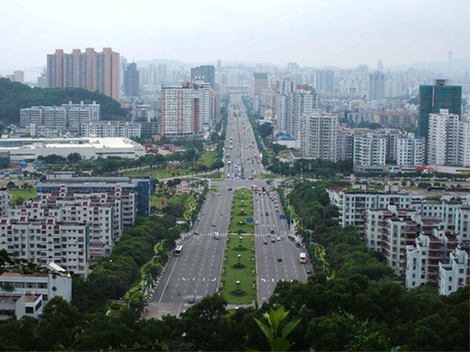|

|
|
File photo?of Zhuhai, the southwestern city in the Pearl River Delta region |
Drivers who don't switch off their vehicle engines while waiting in environmentally sensitive areas, such as residential neighborhoods or schools, will face a fine of up to 200 yuan (US$29) starting May 1, local authorities of Guangdong Province?said yesterday.
The revised regulations of environmental protection in Zhuhai said that drivers will be prohibited from leaving their vehicle ignitions on while waiting in residential areas, near schools, government department buildings, hospitals, public parking lots and scenic spots.
In case of violation of the new regulation, drivers may be fined anywhere between 20 yuan and 200 yuan.
The local people's congress recently passed the regulation, which is designed to maintain Zhuhai's clean air quality.
The southwestern city in the Pearl River Delta region will become the first in the mainland to impose such a fine.
The regulation, which aims to reduce noise and pollution discharged by vehicles, was introduced after the city thoroughly studied the ways air pollution is curbed in several western countries, Mao Dongxin, director of the Zhuhai environmental protection bureau, said.
Another regulation introduced yesterday stipulates that no interior decoration projects which cause noise pollution will be allowed in residential buildings from noon to 2:30 pm and 7 pm to 7 am everyday.
Violators will be fined between 200 yuan and 1,000 yuan.
Addressing a press conference yesterday, Mao urged all drivers to abide by the new rule and contribute to ensure fresher air in the city, which borders the Macao special administrative region.
"With the number of vehicles going up in recent years, gas discharges have contributed to 80 percent of the city's air pollution," Mao said, adding: "and exhaust fumes from cars, buses and lorries mainly contain nitride and oxide.
"It is of great importance to control and reduce the waste gas discharged by vehicles to ensure fresh air."
For many local residents, the new regulation is a welcome move.
Zhang Hongwei, a civil servant, said the rule can certainly help prevent and reduce air pollution in Zhuhai, although the city's air is still fresher than that of the other Pearl River Delta cities.
"But we should not wait for air pollution to first become worse to introduce new regulations to control the problem," Zhang added.
Zhuhai, a model city for environmental protection of China, has long been known for its clean environment and fresh air.
Local residents once dubbed Zhuhai's air as "so fresh that it can be canned and sold to other countries".
(China Daily December 26, 2008)